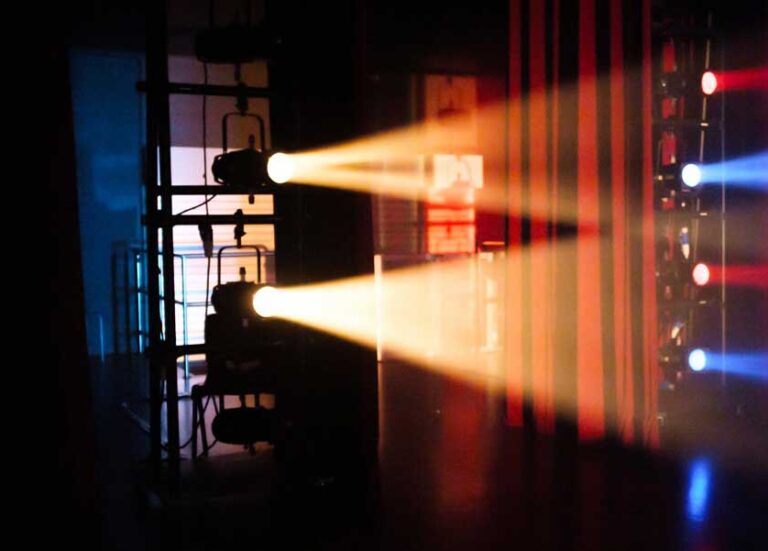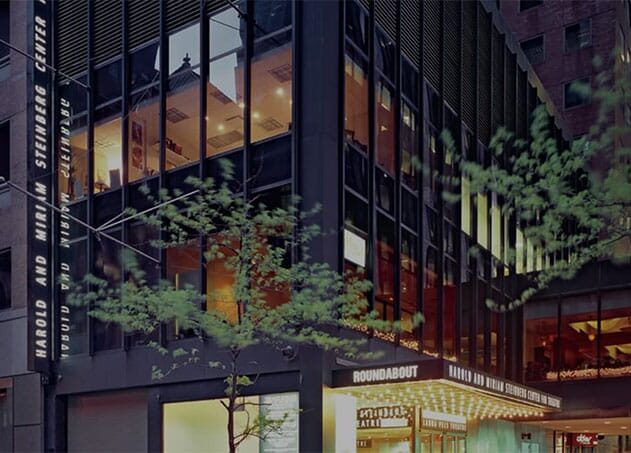Building a Better Roundabout
In Our Community
Targets & Progress
In September 2021, we shared our plan to build a better Roundabout. Explore our yearly progress and review our original five-year goals below.
35%
35% BIPOC representation in audiences within the next five years
When we launched this plan, we had a more ambitious target. Since then, we have learned more about the current-day challenges that exist in establishing new community relationships and the time it takes to build more diverse audiences.
10
Create and develop 10 deep, multi-year relationships with new community-partner organizations over the next five years
Our Five-Year Goals
Diversity
Undertake robust and separate marketing and audience-development strategies to target diverse races/ethnicities, ages, physical abilities, and socio-economic backgrounds, hiring paid specialists and consultants when identities are not represented by our team members
Broaden our sales efforts to include culturally specific groups for all productions, not just the shows that reflect their lived experience
Invite potential partner organizations/associations to performance days with interactive programming and interaction with staff to deepen mutual engagement
Expand media outreach, including opening night ticketing to include BIPOC media—specifically non-reviewing press
Explore and expand how Roundabout Underground can be used to support emerging talent beyond playwrights, to encompass creative teams and backstage staffing
Continue to support the pipeline of diverse theatre-makers by investing in and seeking guidance from existing Roundabout Directing Fellows, Roundabout Directors Group, and Theatrical Workforce Development Program cohorts; and creating sibling programs in areas such as design and stage management
Expand donor outreach to encompass new audiences, including external identity-based giving circles in the community
Provide additional tickets to established critics for mentees from the BIPOC community, to help the media outlets transform their staff composition
Invite BIPOC writers/outlets to press events and give them access to cast and other creatives
Service photos and other media to smaller outlets who might not have the resources to send their own staff
To help broaden the critic/media community, partner with learning organizations in those fields to make tickets available and explore allocating resources
Allocate unsold tickets and available space at wraparound events to benefit community partners
Learning
Develop and share pre-show materials—pre-attendance and in-venue—to convey to all attendees our initiatives and values around EDI/AR
Solidify and expand audience and donor demographic-data collection, and use this data, along with targeted surveys, to better understand and serve these stakeholders
Educate audiences, ushers, and front-of-house staff about resetting expectations for audience behavior and playing their part to create a welcoming experience for all, particularly underrepresented groups and students
Host Community Conversation events for audiences about new policies of anti-racism and belonging
Network with and learn from existing diverse organizations to share and challenge our expertise and perspectives, both for individual productions and for the institution as a whole
Accountability
Share and enforce our EDI/AR values and expectations for all non-staff vendors and contractors; sever partnerships with those that do not adhere; and internally share lists of approved vendors
Codify methods for staff to address and report incidents or behaviors from and between audience members, and create standardized responses to alleviate our staff’s burden of explaining EDI/AR issues
Revise post-show surveys for audiences—including partner-school students and teachers—to monitor and measure experience of belonging in Roundabout spaces
Ensure promotional and communications materials accurately reflect the actual diversity of our programming and do not tokenize any artists, productions, or participants
Ensure press and marketing teams are equipped with vocabulary, strategies, and practices to include BIPOC artists, staff, and students without tokenizing them
2021-22 Season
Action Points
Partnered with New York Public Library to offer pay-what-you-can tickets for library patrons from communities underrepresented in our audience and artist in residence programming in their neighborhoods
Partnered with Pregones/PRTT on the second year of The Refocus Project, our initiative to transform the American canon
Added a line to every show’s budget for BIPOC-specific audience-development
Coordinated a “Blacks on Broadway” omnibus feature in the New York Amsterdam News
Researched and created new relationships with 20+ BIPOC media contacts
Collaborated with media experts who mentor students and young theatre writers and students to help build a more diverse media pool for the future
Hired a BIPOC-owned fundraising consultant company to help raise funds for our ongoing EDI/AR work, leading to the creation of the Forward Fund, supporting our EDI/AR efforts across the organization
2022-23 Season
Action Points
Partnered with Ma-Yi Theater Company to promote the third year of The Refocus Project Year, our initiative to transform the American theatre canon
Established new Community Night collaborations with The Open House Project and Breaking the Binary Theatre
Honored Black Theatre United at the 2023 Gala
Conducted focus groups with BIPOC arts patrons to improve our understanding of these audiences and to inform the broadening of our marketing to them
Expanded our discussions with young artists, including our Leon Levy Foundation Roundabout Directors Group, to find ways to encompass directors in our Space Jam support initiative for writers
Successfully met and exceeded a $100,000 challenge issued by Denise Littlefield Sobel to launch the Forward Fund, dedicated to supporting our EDI/AR efforts across the organization
Teaching Artists facilitated over 120 classroom residencies at partner schools throughout the five boroughs of NYC
Hired consultants to help us accurately and comprehensively measure our BIPOC audiences beyond mere ticket sales.
2023-24 Season
Action Points
Expanded our partnership with New York Public Library with pay-what-you-wish tickets for library patrons from communities underrepresented in our audience, and created artist-in-residence programming in Bronx, Harlem, and Queens branches.
Co-hosted Community Nights with Black Boys Do Theater, Harlem Grown, National Black Theatre, New York Theatre Workshop, Project 1 Voice, and The Schomburg Center for Research in Black Culture, and The Open House Project.
Achieved 65% BIPOC-representation among of our contracted vendors for Development events, including Melba’s Restaurant, Flood Catering, theatre event photographer Marcus Middleton, and florists Juliette Floral Design and Farrah Maxwell.
We have raised direct institutional support for our EDI programs, chiefly through the Jerome L. Greene Foundation and Delta Air Lines to support our Community Partnerships and broader work to break down barriers for historically underserved communities in addition to our continued funding for the Forward Fund which supports all of Roundabout’s work to increase representation and inclusion.



